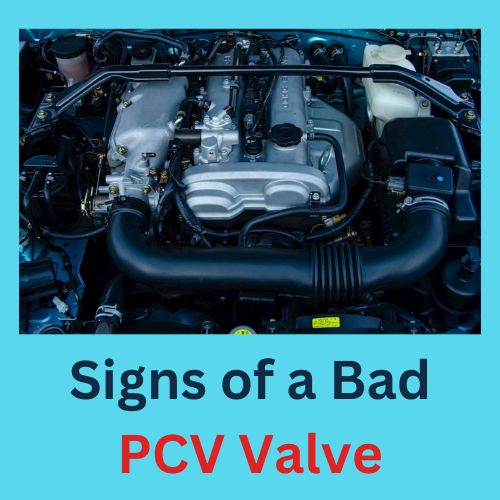When it comes to car maintenance, it’s often the smaller parts that can make a big impact. One such component is the Positive Crankcase Ventilation (PCV) valve.
Although it may be small, the PCV valve plays a crucial role in engine performance, fuel efficiency, and emissions control. Recognizing the signs of a bad PCV valve can save you from costly repairs and keep your car running smoothly.
XL Car Care specializes in diagnosing and fixing issues like bad PCV valves, ensuring your car performs at its best.
Below, we’ll walk you through the most common signs of a bad PCV valve and what to look out for in your vehicle.

What is a PCV Valve?
The PCV valve is part of your car’s emissions system, responsible for rerouting unburned gases back into the engine, where they’re burned rather than vented into the atmosphere. This process reduces emissions and improves fuel efficiency.
However, over time, the PCV valve can wear out or become clogged, leading to a host of problems. Knowing the signs of a bad PCV valve can help prevent further engine damage.
Key Signs of a Bad PCV Valve
Oil Leaks and Excessive Oil Consumption
One of the first signs of a bad PCV valve is unexpected oil leaks. A faulty PCV valve can cause pressure to build up in the crankcase, which may push oil out of seals and gaskets, resulting in visible oil leaks.
Increased oil consumption is another symptom, as the engine might burn oil at a faster rate due to this pressure imbalance.
Check Engine Light Turns On
A clogged or faulty PCV valve can trigger the check engine light. When the PCV valve is malfunctioning, it can disrupt the air-fuel mixture and cause irregular engine performance, setting off the engine warning light.
If you see this light come on, especially alongside other symptoms of a bad PCV valve, it’s best to get it checked by professionals, like those at XL Car Care.
Rough Idling or Engine Misfire
One of the most common bad PCV valve signs is a rough idle. When the PCV valve isn’t functioning properly, it can lead to an unstable air-fuel mixture, resulting in rough idling or even engine misfires.
Drivers often experience an inconsistent idle, which can be particularly noticeable when the car is at a standstill.
Poor Fuel Economy
Another of the signs of a bad PCV valve is reduced fuel efficiency. A malfunctioning PCV valve affects the engine’s combustion process, often causing it to burn more fuel than necessary.
If you notice that your fuel economy has dropped unexpectedly, it’s worth considering whether a bad PCV valve might be the culprit.
Increased Exhaust Smoke
A faulty PCV valve can lead to a buildup of oil vapors, which can end up in the exhaust system and cause visible smoke. This is often seen as a bluish tint in the exhaust, indicating that the engine is burning oil.
Increased exhaust smoke is not only one of the tell-tale signs of a bad PCV valve but also a sign that your car needs immediate attention to prevent further damage.
Hissing Noises from the Engine
When the PCV valve or its hoses are clogged or cracked, it can cause air to leak, resulting in a hissing sound from the engine.
This hissing sound is usually a strong indicator of a PCV valve issue and should be investigated promptly to prevent engine inefficiency.
Why Choose XL Car Care for Your PCV Valve Issues?
At XL Car Care, we understand how important it is to identify and address issues like a faulty PCV valve early on.
Our skilled technicians are equipped to diagnose all the symptoms of a bad PCV valve, from oil leaks to poor fuel efficiency.
With our state-of-the-art equipment and commitment to quality service, we ensure your vehicle is back on the road with optimal performance.
What are Symptoms of a Bad PCV Valve?
In summary, if you’re noticing any of the following, you may be dealing with a failing PCV valve:
- Oil Leaks and Increased Oil Consumption: Pressure buildup can force oil out, creating leaks.
- Check Engine Light: A misbalanced air-fuel mixture may trigger this warning.
- Rough Idling or Misfires: Unstable idle due to air-fuel disruption.
- Poor Fuel Efficiency: Excess fuel consumption indicates inefficient combustion.
- Exhaust Smoke: Burning oil may produce a bluish exhaust smoke.
- Hissing Sounds: Air leaks from damaged PCV hoses or valve.
Being proactive about these bad PCV valve signs can save you from costly repairs. If you’re asking yourself, “What are the symptoms of a bad PCV valve?” or if you’ve noticed any of these signs in your vehicle, XL Car Care is here to help.
We specialize in identifying and fixing the signs of a bad PCV valve, ensuring your car remains in top shape.
Final Thoughts
Your car’s PCV valve may be a small component, but it plays an essential role in maintaining engine performance, fuel efficiency, and emission control.
Recognizing the signs of a bad PCV valve, from oil leaks to rough idling, can help you address the issue before it escalates.
For reliable and professional service, trust XL Car Care to diagnose and fix any PCV valve symptoms effectively, so you can drive with confidence knowing your car is running smoothly.
If you suspect any bad PCV valve signs in your vehicle, don’t hesitate to reach out to XL Car Care.
XL Car Care
Address – B2/31, Mohan Cooperative Industrial Estate, Badarpur, New Delhi, Delhi 110044
Email – info@xlcarcare.com
Phone – 092894 55403
Sunday, Closed
Monday To Saturday – 8:30AM–7:00PM
Google Map Location Listing – https://maps.app.goo.gl/fac5JP8qRmregr577
